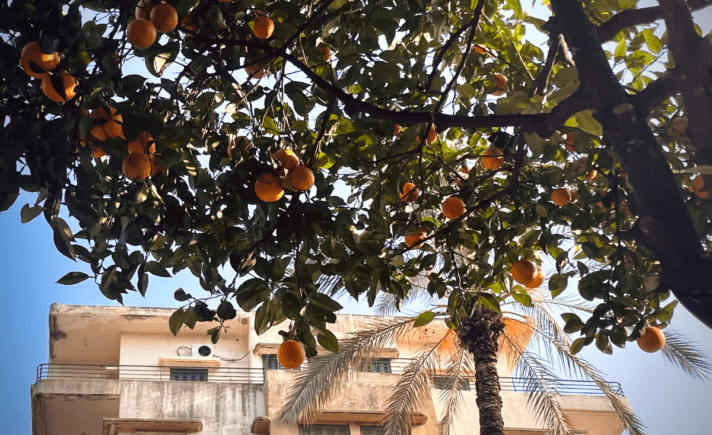Dear Hassan,
A friend suggested that we gather in a symbolic funeral in Paris to bid you farewell – in open air as it remains impossible to rent closed halls under the current lockdown. I thought we may have sent you off to the tunes that you loved, and just how many musical references you cited during our translation courses! I never remembered the names of any composers or pieces, but it seemed to me, and God only knew, that you were fond of jazz. As I read from those who are eulogizing you, my heart skips a beat. How could I forget what Odai al-Zoubi mentioned, that you were a lover of owls and a collector of hundreds of pieces related to the owl – a Greek symbol of wisdom and prudence as you used to say. I try to remember any of these texts that you used to astonish us with as you presented them for us to translate. I no longer remember the texts, only the sense of gratitude and the wonder at discovering new things – in that room in the basement of the French Cultural Center in Damascus, a sense I have known ever since Jamal Shehayed introduced you as our new teacher after your returned from France. Is that not the best that a teacher could leave a student with, a passion for learning? Is it not that magic that was always associated with the magicality of Alain-Fournier’s Le Grand Meaulnes? I cannot recall any of the details or events of that play, but I remember the sense of being transported, moved as if by magic. These texts, that we read with you, Dimitri and Jamal, gave us this same feeling of transfixion and magic.
You were repeatedly surprised by my naivete – as laced with blind stubbornness as it is. “You still haven’t noticed that he is very fond of you?” you once exclaimed, “You honestly didn’t pick up on it?” “What rigid discipline is this? A diploma of higher education in linguistics? You should write literature and translate.” Speaking of which, whatever happened to my then admirer, the melancholic poet you cared for, you did all of us, and paid close attention to our every need. What I remember most, Hassan, is that you can see without your spectacles. It is typical for intellectuals in our part of the world to be charged with a type of magnetism, to be fully occupied with their own psyches, and to see others only inasmuch as these others reflect to them something affirming about them. When you saw the other, you looked them in the eye and were fully present. You recognize them, without this depending on the rituals and gestures of our country, our terrible country. In this country, the terrible and only country we have as Yassin al Haj Saleh says, people are very adept at the art of appraising people. Before they see you or look into your eyes, what they first see is what you represent, and your value in terms of power, influence, and the ability to go through doors or open them for others. You never engaged in this practice, and would see beauty in everyone without appraising them with our country’s standards.
I no longer remember the plays that you invited us, your students, to attend. However, I remember the impression of seeing you walk up the Hamra stage with Dr Zahra – as we then trusted the play is worth attending. When I first entered the library of the Institut français du Proche-Orient (Ifpo) in Abu Rummaneh, to consult some of their linguistics literature preparing for a series of studies, I was shaking from shame. I felt out of place, a stranger. My eternal problem is that nowhere is my presence legitimate. You took me by the hand, and introduced me to the whole staff from the chief librarian to the front desk clerk. You introduced me to Shuhail Shbat, as well as an Arabic teacher and a pupil who was preparing a dictionary of the Levantine dialect. I no longer remember all the names, only the feeling of safety and gratitude.
I know the subject of memory irks you. Memory was your obsession in the last years. Yet, I have really forgotten the name of that cured meat you enjoyed and always brought from Portugal on your many visits to Lisbon to coordinate with Mediterranean agencies citizenship-themed activities and programs. However, in a corner of my mind I still remember your invitation to dinner in your home, you cooking for us, and all that overwhelming love and warmth.
I once awaited you outside Ifpo. I didn’t see your children, Yazan and Aram, emerge from the car to say goodbye before you left them at your parent’s house across the street from Ifpo, as this was in the 1990s and they were too small to be seen through the car windows. Yet, all I remember from that moment was your aetherian elegance and decorum in dealing with the small children, as well as your parents who were awaiting you on the balcony, and me standing on the other side of the road. I think, at the time, you were trying to convince me to translate a book about Marx – or am I mistaken? It was this elegance; that which I still cannot define, which I then saw in your eyes, now pouring tears over the passing of Akram Antaki. When the funeral service ended, as we walked out of the Church of the Holy Cross in Damascus, I was taken aback by your tears. At the time, you told those in attendance that this is the end of your residence in Syria, and that you are leaving for Lebanon. I do not remember all that was said then, only your elegance as you wept, and something that is constantly in-tune with itself, as well as our sorrow.
We did not meet often after the revolution. Occasionally in Beirut, and then in Paris that you loved so much. In our brief encounters, work took over. You always worked, silently and without fuss. From the outset, you had understood our battle against amnesia, and for the preservation of our collective memory, and all you’ve done in your life was aligned with this; your concern. The picture is only complete at the last moment, as if the creation of life must not appear complete except in the elegance of the final moments – as though a colorful butterfly emerges from its cocoon. I revisit the Ifpo archives in Damascus, your recorded interviews with authors, the cinema club, the Syrian Testimony book series, and your book Syrian Traditional Music, and in all of them I see this same harmony between your interests and your moral concerns.
In a few fleeting moments, I would sense some bitterness in you, that your keen and diligent work was not fully appreciated. This is the price of elegance, Hassan, under-the-skin elegance as described by Yassin Swehat – whom you loved – liked to call it. You entered into the frame of everyone’s life as a person to trust, without banging your feet on the floor, like background music in perfect harmony; music that only hurts when it is interrupted, a chisel that digs without noise, only existing.
In the final scene of Still Alice, starring Julianne Moore, Alice forgets every detail and every interaction with people after her Alzheimer’s. Speaking to her, her daughter asks: “Do you understand what I mean?” The mother replied: “Love.” We may forget details due to their ethereal intensity, fluidity, or their being a natural accompaniment to life – as if they were constant and guaranteed, and never to be interrupted. However, the reverberations of music remain, even if we forget the notes themselves. Love, elegance, and generosity remain even if we lose all of our memories wholesale, as remains the music you used to listen to in your last days, Hassan.





